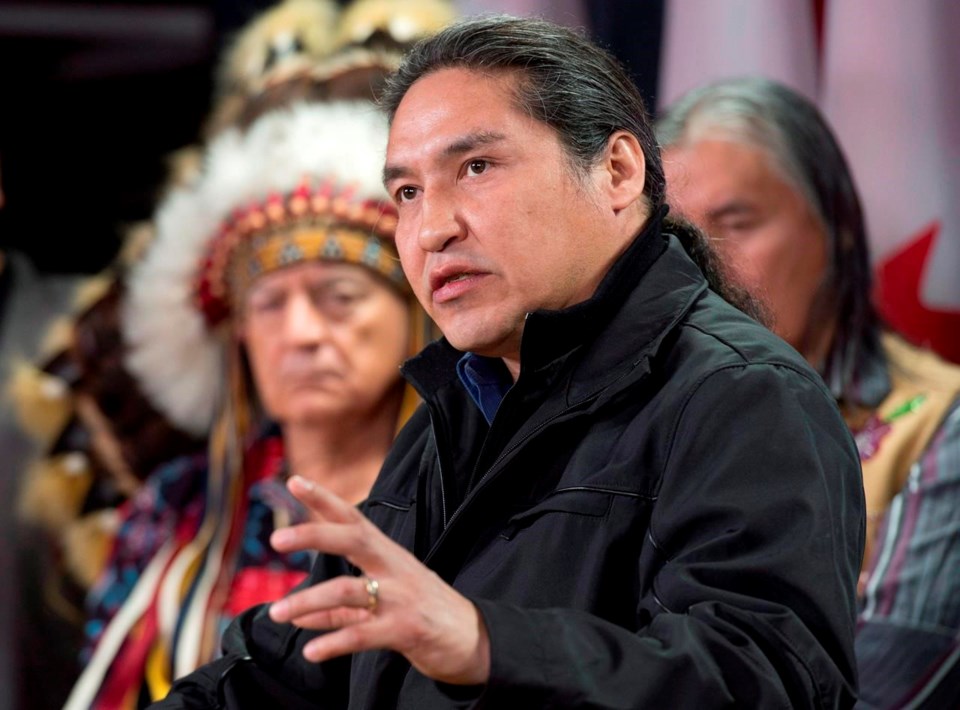FORT MCMURRAY — A tribal council representing five First Nations in northeastern Alberta declared a state of emergency over what it calls an escalating mental health and addictions crisis.
Athabasca Tribal Council Grand Chief Allan Adam told a news conference Thursday in Fort McMurray, Alta., that 60 members of the First Nations have died since January from drug overdose, suicide or as a result of self-harm.
“This is more deaths in the ATC First Nations than was reported as the result of COVID-19,” Adam said.
The council represents Athabasca Chipewyan First Nation, Chipewyan Prairie First Nation, Fort McMurray 468 First Nation, Mikisew Cree First Nation and Fort McKay First Nation. The First Nations have about 2,500 Cree and Dene members who live on and off reserve.
The council said in a release that it’s calling on the federal government to enter immediate and sustainable funding agreements to develop a plan to deal with generational and cultural trauma.
It said the plan would work to establish detox and treatment centres, health resources and support, a regional employment strategy and an Indigenous-led policing program.
Zeus Eden, press secretary for Indigenous Services Minister Patty Hajdu, said the minister has met with Adam and government officials meet regularly with the Athabasca Tribal Council. Eden also said a crisis response team has been deployed in the area since April.
“The loss of a loved one due to suicide or overdose is a life-altering event, with devastating impacts for families and communities. We share the concerns of Athabasca Tribal Council, and we are committed to working with all partners, including the provincial government, to support community led solutions that really work," Eden said in an email.
Adam said the First Nations cannot rebuild communities and help them thrive without support from government as well as local industry.
“Generations of unaddressed impacts of residential schools, trauma and cultural oppression have created long-standing mental health crises and feeding addictions," Adam said.Â
"These are the things that happen when there’s no help available for anyone."
Adam said the council has started creating multiple 24-hour mobile crisis teams to immediately respond to those in need. It has also been working with the RCMP and Alberta Health Services to establish avirtual program for those struggling with opioid dependency.
He said the council will continue to do everything in itspower to support community members, but they are far ending the state of emergency.
“This is not a crisis that started with a root cause. This is a tragedy of multiple inadequate Band-Aidsolutions over generations," he said.
“We need the federal, provincial and municipal governments to step up and work with our communities who are already doing the work.”
Adam said theoilsands industry must commit to a stronger policy that protects the land and communities that his people live in.
"We must have industry strengthen partnerships with our communities to increase access to cultural safety, health care and to provide training and career opportunities to benefit and provide hope to our communities and families."
Adam said all industries, agencies, departments, ministries and governments need to collaborate in order to make a comprehensive approach to healing the communities.Â
Karla Buffalo, chief executive officer of the tribal council, said the First Nations need timely access to detox and treatment centres that are also culturally appropriate.
“We are often in crisis," she said. "So when we are in crisis in our communities, we need to be able to support each other with people that can listen in culturally relevant and respectful ways."Â
This report by The Canadian Press was first published Sept. 7, 2023.
— By Jamin Mike in Edmonton
The Canadian Press




